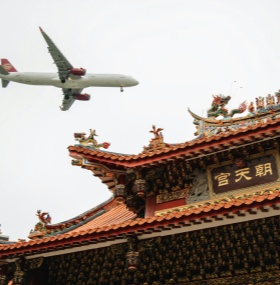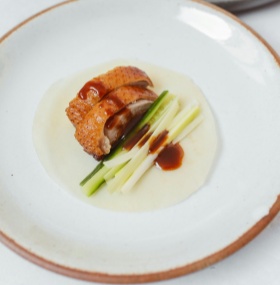Traveling to China offers a wonderful opportunity to dive into one of the world’s most diverse and exciting food cultures. From savory street snacks to gourmet dishes, Chinese food is an integral part of the travel experience. However, with its unique ingredients, cooking styles, and hygiene standards, food safety can become a concern for travelers. To help you enjoy China’s culinary offerings without worry, here’s a comprehensive guide on how to handle food issues and stay safe during your trip.
If interested in China Food Experience Tour, plz contact us for customized based your individual preference.
1. Understanding the Chinese Food Culture
Before you embark on your food journey, it’s important to familiarize yourself with the basics of Chinese cuisine. Chinese food is diverse, and regional specialties can differ drastically in terms of ingredients, flavors, and preparation methods.
Spices and Flavors: Chinese food can be spicy, oily, and rich in fermented flavors. While Sichuan, Hunan, and Xinjiang cuisines are known for their bold use of chili peppers, other regions like Cantonese cuisine feature more delicate and balanced flavors. It’s essential to know your tolerance for spicy foods or strong ingredients (such as garlic, ginger, and fermented soy products).
Street Food Culture: Street food is a beloved part of Chinese food culture and offers an authentic way to experience local dishes. Street vendors in bustling markets serve everything from dumplings and skewers to fried noodles and pancakes. However, street food does come with certain risks related to food safety, so it’s important to be cautious when choosing where and what to eat.
2. Avoiding Foodborne Illnesses
Though most food in China is safe, foodborne illnesses can occur due to improper food handling or unfamiliar ingredients. Here are some tips to minimize your risk:
Choose Safe Dining Options
Well-Reviewed Restaurants: Opt for well-reviewed or busy restaurants that maintain high hygiene standards. Reputable places tend to prioritize food safety, and a bustling restaurant often indicates fresh ingredients and efficient food turnover.
Avoid Dirty Places: Steer clear of eateries or street vendors that appear unclean or lack basic sanitation. You’ll want to avoid food stalls with unprotected food, improperly stored ingredients, or workers not wearing protective gear (e.g., gloves, hairnets).
Eat Fresh and Well-Cooked Food
Thoroughly Cooked Food: Avoid raw or undercooked meat, seafood, or eggs. While some Chinese dishes feature raw preparations, such as in Sichuan-style cold dishes, it's best to stick to thoroughly cooked meals, especially if you're not accustomed to local hygiene practices.
Boiled or Cooked Vegetables: When it comes to vegetables, avoid raw salads or items that may have been washed with untreated water. Stick to well-cooked vegetables or those prepared in trusted establishments to minimize risk.
3. Stick to Bottled Water and Avoid Ice
One of the biggest food-related risks in China for travelers is drinking tap water. Most Chinese cities do not have potable tap water, and drinking it may lead to gastrointestinal issues.
Bottled Water: Always buy bottled water or carry a portable water purifier. Make sure that the bottled water is properly sealed before you buy it, as some counterfeit water bottles are sold on the black market.
Avoid Ice: Ice in China is often made from tap water, which may not be treated or purified. Avoid drinking beverages with ice, especially in rural areas or places where hygiene standards may be lower.
4. Being Cautious with Dairy and Gluten
Chinese food generally contains less dairy than Western cuisine, but some regional dishes may still contain milk or milk-based ingredients. Additionally, many Chinese dishes contain gluten, particularly wheat-based noodles, dumplings, and pancakes.
Lactose Intolerance: If you’re lactose intolerant, it’s essential to clarify with restaurant staff whether a dish contains milk or dairy products. Soya milk is a popular alternative in many parts of China, and dairy-free options are often available in larger cities.
Gluten-Free Options: Gluten sensitivity or celiac disease travelers may have difficulty finding gluten-free dishes in China since wheat-based products are common in traditional cuisine. It’s important to communicate your dietary restrictions clearly and inquire about gluten-free options.
5. Managing Food Allergies
If you suffer from food allergies, it's vital to be prepared and cautious when dining out in China. While major cities like Beijing and Shanghai have international restaurants where English is spoken, food allergies may be harder to manage in smaller towns.
Key Phrases: Learn the relevant food allergy terms in Mandarin or carry a translation card to show the restaurant staff. For example, if you're allergic to peanuts, learn how to say "I’m allergic to peanuts" (我对花生过敏: Wǒ duì huāshēng guòmǐn).
Translation Cards: It’s highly recommended to carry a translation card or use a translation app to explain your allergies to restaurant staff. This ensures that they understand your needs and can take precautions to avoid cross-contamination.
6. Street Food Safety Tips
Street food is one of the highlights of any trip to China, offering delicious and inexpensive snacks. However, food safety can be a concern due to varying hygiene practices across vendors. Here’s how to stay safe while enjoying street food:
Look for Busy Vendors: Choose food stalls that are busy with customers, as this generally indicates that the food is fresh and turnover is quick. Avoid stalls that have food sitting out for extended periods, as this can lead to contamination.
Eat Hot Food: Make sure the food is served hot and freshly cooked. Reheating or pre-cooked food can be a breeding ground for bacteria if left sitting too long.
Watch for Cleanliness: Assess the cleanliness of the stall and vendor before purchasing. The vendor should wear gloves or take precautions while preparing food, and the area should appear reasonably clean.
7. How to Handle an Upset Stomach
Even with the best precautions, travelers sometimes experience mild digestive issues in a new country. Here’s how to manage an upset stomach:
Stay Hydrated: Drink plenty of bottled water, and avoid caffeinated or sugary drinks that can make dehydration worse.
Use Medication: Over-the-counter remedies like anti-diarrheal medicine (e.g., Imodium) can help alleviate mild symptoms. Carry a small first-aid kit with essential medication.
Rest: If you feel unwell, take time to rest and avoid consuming heavy meals until your symptoms subside. If symptoms worsen, seek medical attention immediately.
8. Consider Probiotics
To help your digestive system adjust to new foods, consider taking probiotics before and during your trip. Probiotics help replenish beneficial bacteria in your gut, potentially reducing the chances of digestive discomfort as you try new dishes.
Related Posts
Create Your Customized Trip
Take about 2 minutes to fill the form to tell us how you like to travel, and get a reply within 1 working day.








